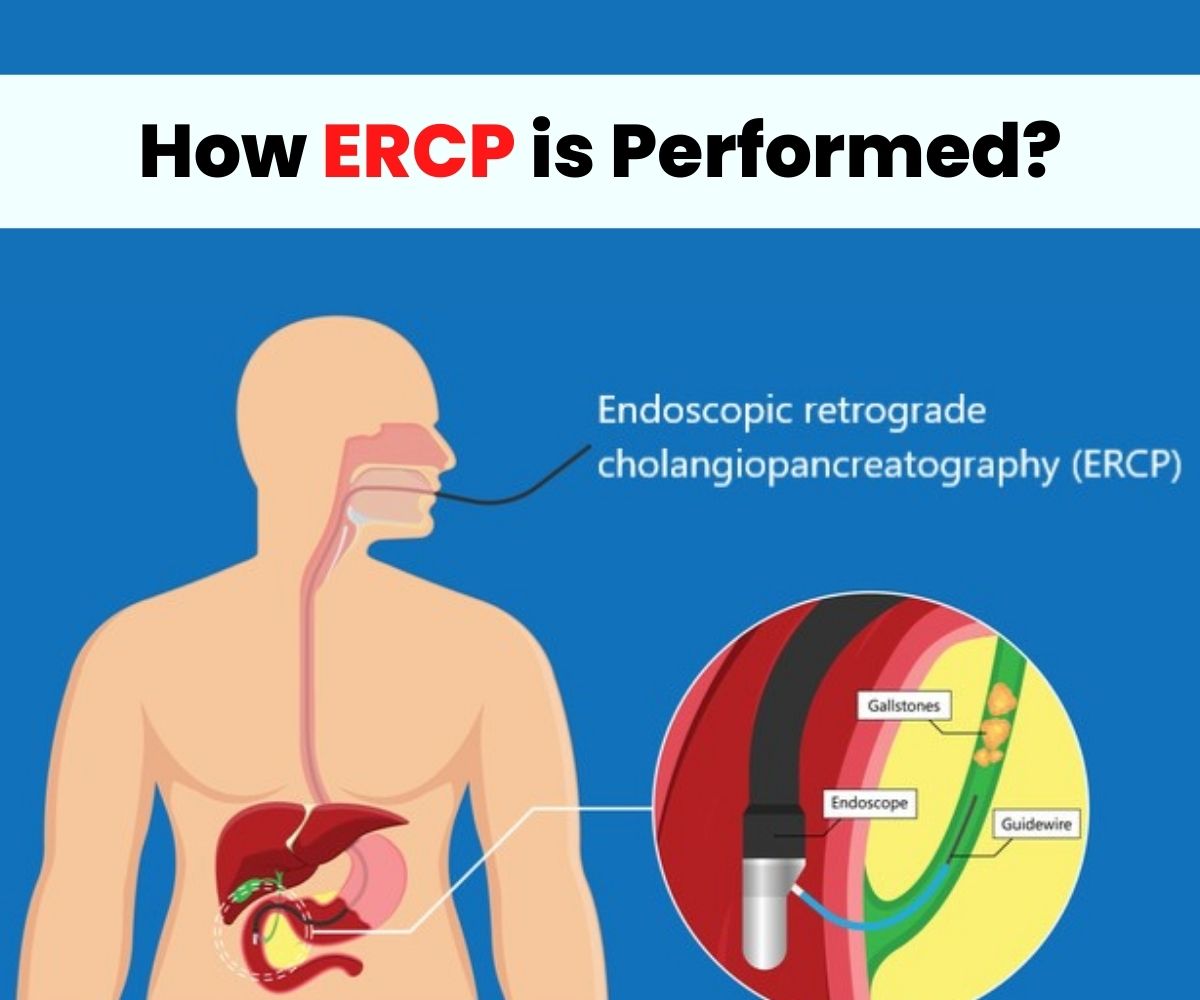What is ERCP ?
ERCP is an acronym for Endoscopic Retrograde Cholangiopancreatography. It is a procedure in which Endoscopy and X-rays are combined to allow your doctor to perform certain interventions. This allows your doctor to pass small sized tubes into your bile ducts and pancreatic ducts.
Who needs to undergo an ERCP procedure ?
It is generally indicated in patients who present with
1.Blockages in the passage of bile-ducts either due to stones or various tumours
2.Narrowing of the bile duct or pancreatic ductal passage
3.Leakage of bile or pancreatic juice from either of the ducts
4.Infection or mass lesions within the bile or pancreatic ducts
5.Jaundice due to obstruction of bile duct passage
How is the procedure of ERCP done?
It is typically done in an elective setting on an outpatient basis after a period of overnight fasting. However, it has to be done on emergency setting in case of certain infections which make you or already had made you seriously ill. It is usually done under sedation (a lighter form of anaesthesia) and you will not feel any pain or discomfort during procedure. Entire procedure will be briefed to you by the nursing personnel who will be accompanying and assisting you during the entire procedure. Thin, flexible fully sterilized side viewing endoscope ( A different form of endoscope than the one that is routinely used for Upper gastrointestinal endoscopy ) is gently inserted into your mouth under the vision and passed beyond in your upper part of digestive system while you are lying in a prone position. A thin tube will be passed through the side viewing endoscope into the biliary bile-duct or pancreatic duct depending upon the case, and contrast dye will be injected into the specific ducts. Multiple X-rays are taken to facilitate the visualisation of biliary and pancreatic ducts. Depending upon the diagnosis of your disease further therapeutic interventions are carried on; for example, if you have stones in your bile-duct they are removed with the help of various accessory equipment’s. Finally a stent is left in situ to facilitate the drainage of the bile or pancreatic ducts. Once the procedure is complete you will be fully awake.
What are the various complications that are associated with this procedure ?
1.Inflammation/Infection of pancreas ( Pancreatitis )
2.Infection in the biliary system ( Cholangitis or cholecystitis )
3.Bleeding
4.Perforation ( A tear in the lining of your gastrointestinal system )
The incidence of complications is dependent upon various factors like expertise of doctors, type of accessory equipment used, nature of the disease, condition of the patient. Your doctor generally explains you about the expected complications in a detailed manner depending upon your disease and weighing all other factors.
What should you know about the endoscopic equipment and treating doctors before you undergo the procedure?
With extensive research and expanding technology there are many advances in the field of medicine which help in early diagnosis, accurate treatment. It is important that your hospital and doctors keep in track with all the available advancements.
The experience and expertise of the doctors performing this procedure is key to the success of this procedure and to achieve the desired results with very less complication rate.
Who should be performing ERCP procedure?
Medical or Surgical Gastroenterologists ( MD &DM or MS & Mch respectively ) are the qualified doctors who usually perform this procedure. Qualification and experience are the two main assets which enable your doctor to identify and treat your problem in a sound and confident manner. Their combination would be an added advantage as getting treated with a team of doctors is always better than an individual doctor care.
Why should you get your ERCP procedure done at the Harini Hospital?
To begin with, patient evaluation process and decision making are based on international standards and guidelines. We have the experience of performing highest number of ERCP and EUS in our state with an impeccable sucess rate and safety record. Sucess rate for ERCP at our centre is highest almost Our centre is the only tertiary care private gastroenterology centre in the state of Andhra Pradesh to have a team of doctors which compromises of both medical (DM gastroenterology) and surgical specialities (Mch Surgical gastroenterology) who reside in-house. Combined experience of the team is greater than any other gastroenterology hospital in our state. Harini hospitals is the only exclusive tertiary Gastro and Hepatopancreaticobiliary centre in the state of Andhra Pradesh to offer all such services under single roof, thus making quality care with international standards accessible to the people.
What to expect and how long do you need to stay at hospital following ERCP procedure?
It depends on the cause for which you underwent the procedure rather than procedure itself. Some patients can be discharged on the same day while others need to be hospitalised under our supervision.
Myths and Facts about ERCP
Myth | Fact |
It is painful | It has only mild discomfort |
It is dangerous and contain so much of radiation | It is safe in experienced hands and amount of radiation used is only minimal |
We need to admit in hospital for a long time to get it done | It depends upon your disease status |
It takes long time after procedure for recovering | Many people resume their routine immediately after discharge from hospital |
It needs to be repeated frequently | Most people doesn’t it to be repeated again |
Same scope is used for all patients and hence it is not safe | As long as complete sterility and aseptic precautions are taken care appropriately it it safe |
It is not of any use | It is used for diagnosing and treating many diseases |



